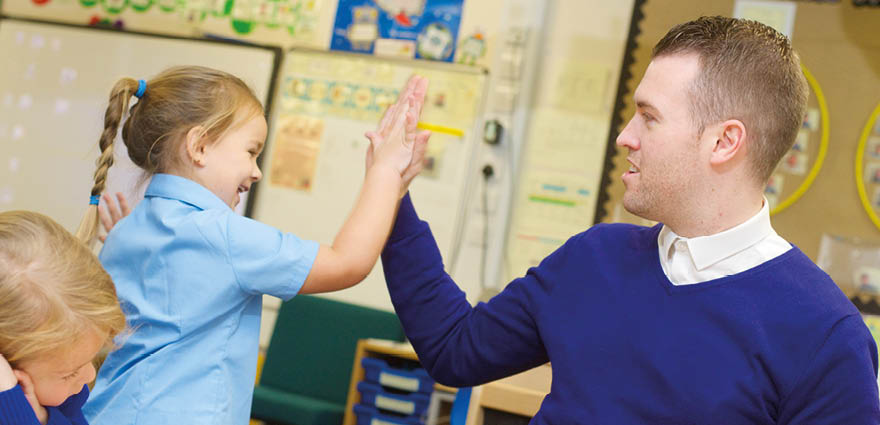Study with us

BA Childhood & Youth
BA Early Childhood
BA Education
BA Early Education (3-7) with (QTS)
BA Primary Education (5-11) with (QTS)
Watch our latest webinar from Postgraduate Solutions on studying education at Liverpool Hope University.
Find out more information about our Postgraduute courses from the list below, or look at our Postgraduate Course Index for the full suite of courses offered by Liverpool Hope.
Advanced Mentoring and Coaching (MA) (PG Cert)
This course intends to provide theoretical and practical knowledge and understanding of mentoring and coaching, which is relevant to a coach or mentor in a variety of capacities; from mentoring trainee and early career teachers, mentoring peers through to coaching leaders. The programme draws significantly on a professional learning model that encourages students to make clear connections between relevant research, theory and practice.
Disability and Interdisciplinary Professional Practice
The postgraduate programme in Disability and Interdisciplinary Professional Practice is designed for teachers, educators and others with a personal and a professional interest in the field of disability studies. The programme offers an opportunity for engagement with the key theories, concepts and ideas in this exciting and innovative field.
Disability Studies
Disability Studies is a rapidly expanding academic field, evidenced by the growth of courses, events, and publications worldwide. The Disability Studies MA at Liverpool Hope University stands out by focusing on cultural issues, examining disability's representation in literature, media, film, and art, alongside policies and prejudices.
Liverpool Hope is an ideal host for this program, boasting a wealth of specialist staff and resources, including award-winning tutors and internationally recognized scholars. The program's profile is further enhanced by the Centre for Culture & Disability Studies, the Journal of Literary & Cultural Disability Studies, the Literary Disability Studies book series, an ongoing seminar series, and the International Network of Literary & Cultural Disability Scholars.
Early Childhood
The postgraduate programme in Early Childhood is designed for early years teachers/educators and others with a personal and a professional interest in the field of early childhood studies. The programme offers an opportunity for engagement with the key theories, concepts and ideas in early childhood education and care (ECEC).
Education
The MA Education programme is designed for practising teachers, educators and others with an interest in the field of education. The programme aims to provide opportunities for engagement with the key theories, concepts and ideas in education.
Education Leadership and Management (MA) (PG Cert)
The postgraduate programme in Education Leadership and Management is designed for teachers, educators and others with a personal and a professional interest in the field of education. The programme offers an opportunity for engagement with the key theories, concepts and ideas in educational leadership and management.
Socio-cultural Disability Studies
This programme delves into the dynamic field of Socio-cultural Disability Studies, providing you with a comprehensive understanding of the social, cultural, and political dimensions surrounding disability. Through an intersectional lens, you will explore the complexities of disability, challenge traditional narratives and interrogate societal norms.
Special Educational Needs and Inclusion Studies
This programme offers a comprehensive exploration of Special Educational Needs (SEN) and inclusion, focusing on the principles, practices, and policies that foster an inclusive environment for all. The relationship between education, disability and professional and educational practices will be considered from various perspectives including an examination of how the field of SEN has evolved over time.
PGCE
PGCE Early Years (QTS)
The PGCE Early Years (3-7) course is particularly intensive. You can be timetabled from Monday morning until 6pm on a Friday. You will study across a number of areas including; initial professional development covering the principles of the teaching profession, the EYFS areas of learning including Prime and Specific areas such as Communication and Language, Physical Development, Personal, Social and Emotional development, Literacy, Maths, Expressive Arts and Design and Understanding the World. .
PGCE Primary (QTS)
The PGCE Primary (5-11) course is a postgraduate qualification aimed at high-quality graduates wishing to pursue a career in primary teaching. It is an intensive, demanding yet very rewarding programme running from late August to July Tutors are dedicated to individual student support and to working closely with our partners in local schools. .
PGCE Secondary (QTS)
All our PGCE Secondary courses run within the context of the Liverpool Hope Partnership. This combines the best of the university training with high-quality professional placements in a range of schools, academies and colleges. Throughout, you will experience high quality training and learn the latest approaches and strategies to enable you to become an outstanding Hope Teacher, fully prepared to start your new career. .







